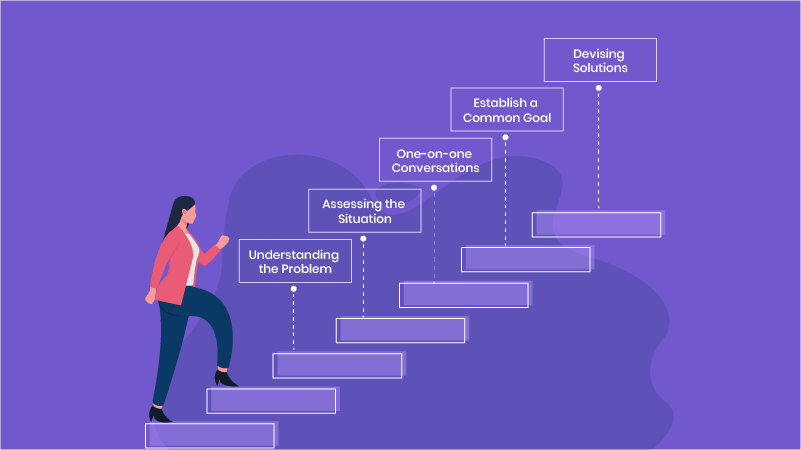Conflict at work – make managers part of the solution, not the problem:
Conflict at work can be a challenge, but it can also be an opportunity for managers to help their employees work together more effectively. By understanding and managing conflict at work, managers can help their employees feel safe and secure, which will lead to improved productivity and customer service.
Conflict at work can be frustrating and time-consuming, but it can also lead to improved communication and performance. By understanding and resolving conflict at work, managers can help their teams feel supported and safe, which will lead to improved performance.
The 4 Types of Conflict at Work:
There are four types of conflicts at work: dyadic, triadic, collective, and individual. Each type has unique characteristics that make it different from the other three types.
The dyadic conflict is typically characterized by two individuals fighting against each other. The triadic conflict is typically characterized by three people fighting against each other. The collective conflict is typically characterized by four people fighting against each other. And individual Conflict is typically characterized by one person fighting against another person. Dyadic and triadic conflicts are the most common types of conflicts at work because they’re easy to understand and resolve.
The dyadic conflict is typically characterized by two individuals fighting against each other. The triadic conflict is typically characterized by three people fighting against each other. The collective conflict is typically characterized by four people fighting against each other. And individual Conflict is typically characterized by one person fighting against another person. Dyadic and triadic conflicts are the most common types of conflicts at work because they’re easy to understand and resolve. CIPD Assignment Help in Dubai is a top-notch service that offers the best writing help for students. With over 10 years of experience.
Why are managers needed in business?
There are many reasons why managers are needed in business. Many businesses require a leader who can motivate and inspire their employees, as well as an auto manager who oversees the day-to-day operations of the business. A manager also helps to improve communication between employees and management, providing order and clarity to chaotic scenes.
Why do leaders need managers?
There are many reasons why leaders need managers. Managers help keep their departments on track, manage resources effectively, and provide overall leadership. They can also help to improve communication and coordination between teams. In short, managers make a big impact on the success of any organization.
How can a manager help improve performance in their organization?
A manager can help improve performance by understanding the individual’s strengths, building a plan to capitalize on their strengths, and training their team members on how to use their strengths. Additionally, a manager can help improve performance by using training techniques and strategies to create an environment in which employees are more productive.
The power of management:
Management is the process of holding people accountable and making sure that their needs are met. By understanding how power works, you can begin to better manage your employees and protect them from bully tactics.
Conclusion:
Conflict at work can be a manageable and necessary part of any workplace. However, managing it should not be seen as the solution to all problems.








Sign up